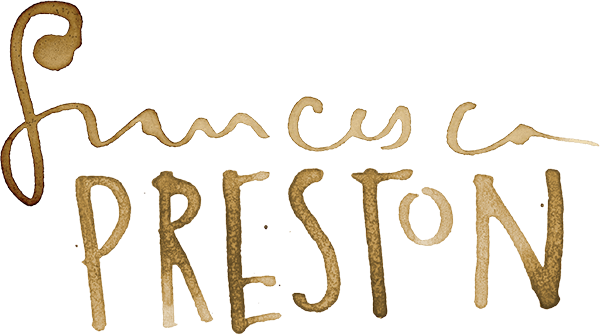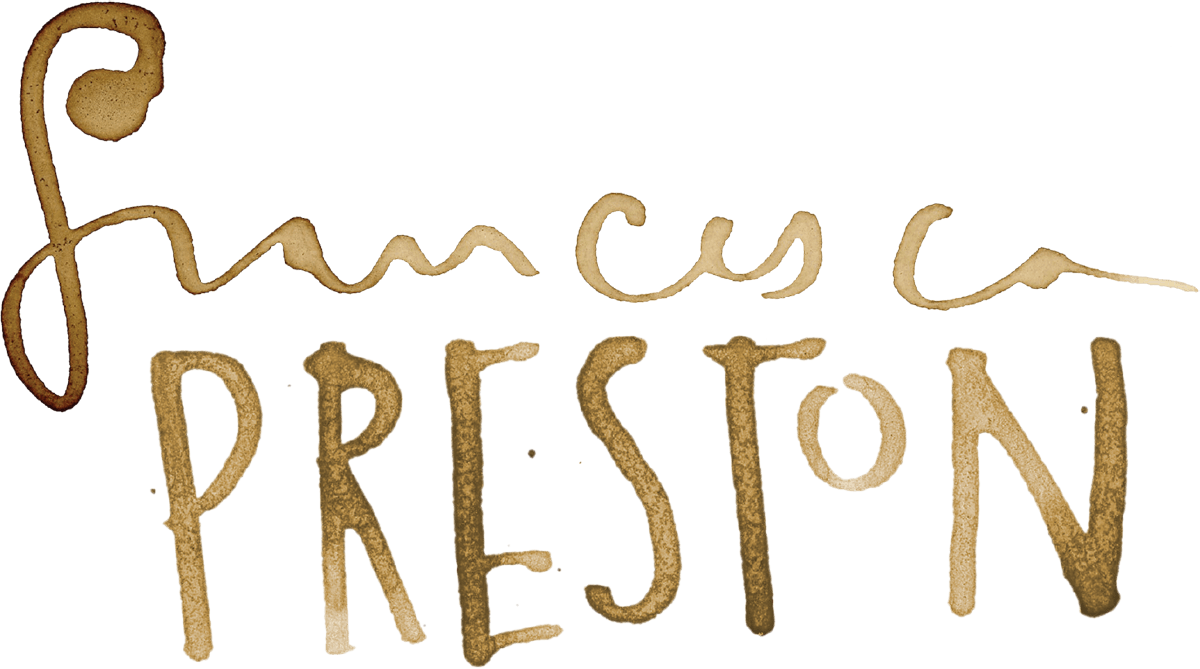Loose Woman
I.
My mother goes into her office and comes back with a compendium of Shakespeare’s entire works, which she tosses on the couch. The couch sinks. “But Romeo & Juliet is really short!” I exclaim, and flip for it with haste. The type is microscopic and the pages are like the thinnest of rhododendron petals, drying on the path of a thousand pilgrimages.
I am looking for a word.
My father watches, unprecedentedly awake at 10 o’clock. This is much better than falling asleep on the couch with the Economist. Flipping, I realize that I can’t even remember who made the speech the word is preserved in, although I have an idea it’s vaguely involved with the Nurse, who is a happy slurry of crudeness.
“It’s, like, the best word in the whole world,” I say, “but I’ve forgotten it.”
“Well, what’s the question?” my father asks, embarking on his nightly ritual of finding and then eating a chocolate bar my mother had bought for him but hidden on the shelf between cookbooks.
“I put, SHAKESPEARE’S LOOSE WOMAN” I say dismally, and peer into my computer, my impudent implement of writing, my dusty cabin of locked words. “It means—fast girl, floozy, loose woman, sort of. It’s a word with a hyphen, two words put together. I fell in love with it when I first read it.”
“And you didn’t write it DOWN?” he howls. “FRANNY! Didn’t anyone ever teach you about passwords!? Were you raised in a BARN?”
II.
And yes, it’s true. In the musty corral of every library, I was a cross-eyed star. Though certain parts of my body were worn to translucence (fingertips, forehead), people could see me, I was someone who believed in her description. “Summa cum lowdy,” my cattle-ranching grandmother would say to strangers, and nod at the invisible blue ribbon around my neck. Best Heifer. No knife of life slew me, because books were my shield.
But then I officially graduated from college, and the fertilest libraries were suddenly off-limits. Slowly, the superlatives began to fade. I stopped counting out sonnets. The tips of my fingers filled in with blood: I became a wild creature, more an antelope than a cow, crossing deserts for some sweet water I had heard of, and looking for the picture of myself on the cave wall.
In short, I left home. I left the people who were sure they knew me, I left my family, I left the guardian angel of academia, who frowned, and said “Watch Out.” Foreign winds kept pulling me out of the country, and I learned to speak Pidgen English. Where you go? I come now.
And as for an identity? I could claim only the bedraggled title of Itinerant Poet, an extreme embarrassment, but softened by modern civilization’s tendency to subdue wild creatures not by killing but by hobbling (notice, no true nomads now, just semi-nomads left). So it follows: today I am merely semi-poetic, semi-itinerant, one foot always pinned to the present tense.
III.
In the house filled with computerlight I am beside myself, poised above the keyboard, praying for illumination. My pen, useless in this endeavor, begins to sweat inside the cap, like a sword into its scabbard. I am not to be trusted, obviously. A poet must travel light—too many possessions possess you—but I’ve forgotten the only essential rule. Write it down.
My father, now amped up on chocolate, thinks he is going to guess the word, this password plucked from Shakespeare’s madly pulsing heart. “WHAT ARE YOU CRAZY?” I slap his hand away. “Don’t touch it!” I know I have maybe only one chance left, before the Mac genius people permanently refuse my entreaties, and my computer rolls up like a little pill-bug, gone forever.
Oh, dear Shakespeare. Would you leave me like this.
I crawl back to the heavy book, revisit speeches I have known; soliloquies memorized and footnotes capped, like feral wine, in little jugs beneath the page. I can’t find it. And yet – so strange – to know it’s there! Hidden in the ether, a star during daylight. I begin to read and read out loud.
IV.
In high school I was always cast as the narrator. Neutral, but foreboding. A knowing voice. “In fair Verona, where we lay our scene.” No skirmishes for me, no balconies. But later in life I return to the parts that are sordid, double-faced, uncertain. Lovers complete each others’ sentences but I like the fallen phrases, words flung into the gutter and washed with blood.
My favorite has long been the prickster Mercutio, a dark figure, whose tongue swaggers through the alleyways, looking for crevices. Mercutio rails against a particular kind of language, all the while loving to hear himself speak: “the pox of such antic, lisping, affecting fantasticoes, these new tuners of accent!” Mostly, I’ve memorized Mercutio – yet he doesn’t hold the word I seek. I walk through every room until he dies.
People are fond of calling Romeo & Juliet a tale of unrequited love – but it is also a story of unrequited language. Words are wanting consummation too, characters are yearning to describe themselves differently. The tragedy is that banishment is the only answer, doffing names in order to be free – “O Romeo, be some other name!” – and always having to say what one is not.
What Shakespeare excels in is wordfight—meanings rubbed against meanings until everyone’s hair is standing on edge. I keep coming back to this play because I’m interested in why it’s so sad. Maybe it’s the death of doublespeak, of dueling. Puns are likewise banished (get thee to a punnery) and the ripest souls vanish.
But in the middle of the play everything is swollen and aggravated with life. The bawdy Nurse, finally hackled by Mercutio’s saucery, explodes. “I am none of your flirt-gills! I am none—”
Here it is! Flirt-gill!
“I am none of your flirt-gills! I am none of your skains-mates!” She’s saying: “Screw you! Give me some respect! I’m none of your loose women! I’m none of your cut-throats!”
Flirt-gill! Flirt-gill!
V.
I am dancing around the living room, I am gargling exclamation points, this is the greatest moment since – and then I realize I can’t remember if I put a hyphen. Would I have put the hyphen? Flirt-gill? Flirtgill? Sweet William, please save me from this agony, I can’t bear it. I’d rather write with feather bones and the ink of squids.
I turn around, halfway between book and computer. Suddenly I seem to be upon a stage, and the two-headed audience of my parents eyes me. Will this be tragedy or comedy?
I approach the hot machine in silence. I type the word, and slide the hyphen in with dread, a piece of hay into a den of needles, and I press ENTER. In the back of my mind I hear Romeo moaning, “Had I it written I would tear the word.”
The barn door opens. My fingertips bloom. And from the couch my father begins to laugh with such force, such timeless giddiness, that tears fall into his lap and pool in the empty chocolate wrapper, like holy water, or night-dew gathered in a dry dry land.


Comments are closed.